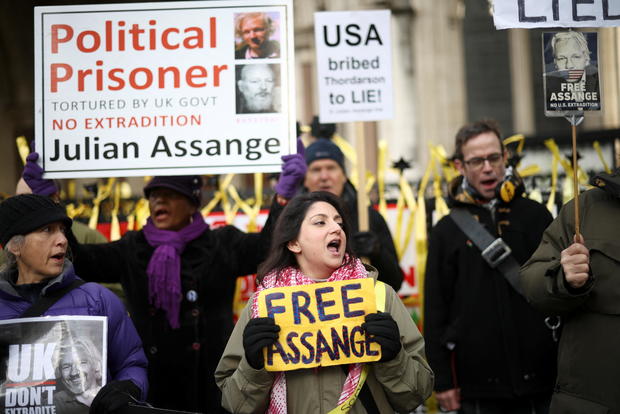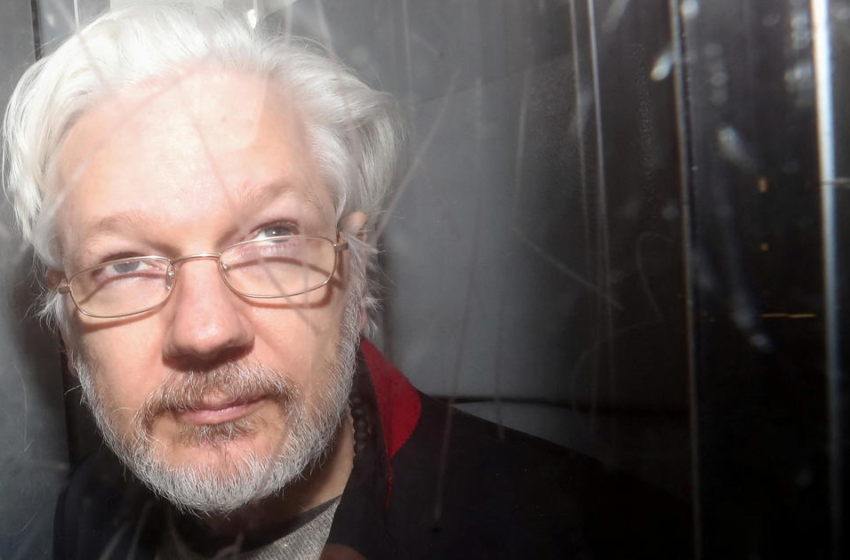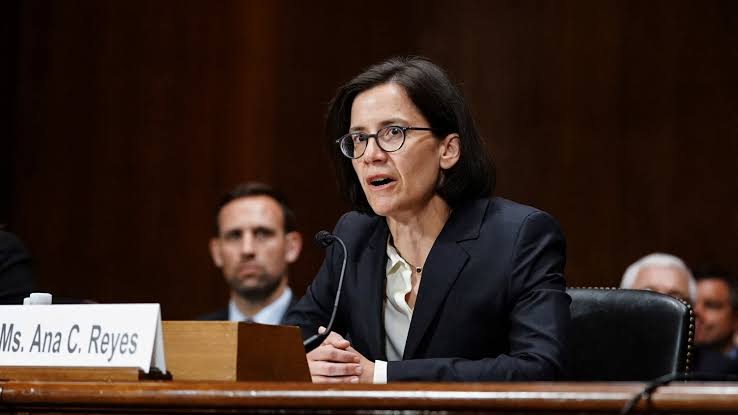London — A British appellate court opened the door Friday for Julian Assange to be extradited to the United States by overturning a lower court ruling that found the WikiLeaks founder’s mental health was too fragile to withstand the American criminal justice system.
The High Court in London ruled that U.S. assurances were enough to guarantee Assange would be treated humanely and directed a lower court judge to send the extradition request to the home secretary for review. The home secretary, who oversees law enforcement in the U.K., will make the final decision on whether to extradite Assange.
But Assange’s fiance, Stella Moris, said the ruling would be appealed “at the earliest possible moment,” according to the Reuters news service.
Assange wasn’t in court, Reuters added. He denies any wrongdoing.

Simon Dawson / REUTERS
The Press Association, a British news agency, quoted Moris as assailing the court’s reasoning. She said, “I want to emphasize that the High Court accepted all the medical evidence and the conclusions of the magistrate that if Julian is extradited and placed under extreme conditions of isolation, it will drive him to take his own life — that extradition is oppressive.
“Yet the High Court decided against Julian on this occasion on the basis of political assurances, non-assurances, that the U.S. has given to the U.K. government. “I say non-assurances — Amnesty International says non-assurances — Amnesty International has analyzed these assurances and has said that they are inherently unreliable.
“They incorporate the possibility of breaking those assurances in their very wording.”
A lower court judge earlier this year refused an American request to extradite Assange to face spying charges over WikiLeaks’ publication of secret military documents a decade ago. District Judge Vanessa Baraitser denied extradition on health grounds, saying Assange was likely to kill himself if held under harsh U.S. prison conditions.
In appealing that decision at the High Court in London, an attorney for the U.S. government denied that Assange’s mental health was too fragile to withstand the U.S. judicial system. Lawyer James Lewis said Assange “has no history of serious and enduring mental illness” and doesn’t meet the threshold of being so ill that he can’t resist harming himself.
Wikileaks founder’s secret family revealed
03:59
U.S. authorities have also told British judges that if the judges agree to let Assange be extradited, he could serve any U.S. prison sentence he receives in his native Australia.
U.S. prosecutors indicted Assange on 17 espionage charges and one charge of computer misuse over WikiLeaks’ publication of thousands of leaked military and diplomatic documents. The charges carry a maximum sentence of 175 years in prison, although Lewis said “the longest sentence ever imposed for this offense is 63 months.”
The classified military documents concerned the U.S. wars in Afghanistan and Iraq.
Assange, 50, is being held at London’s high-security Belmarsh Prison.
The case “has become a cause celebre for free speech,” Agence France-Presse points out, with Assange’s backers asserting WikiLeaks has the same rights as other media outlets to publish secret material in the public interest.
Assange backers outside the court demanded his immediate release from Belmarsh, AFP added.

HENRY NICHOLLS / REUTERS
Download our Free App
For Breaking News & Analysis Download the Free CBS News app













